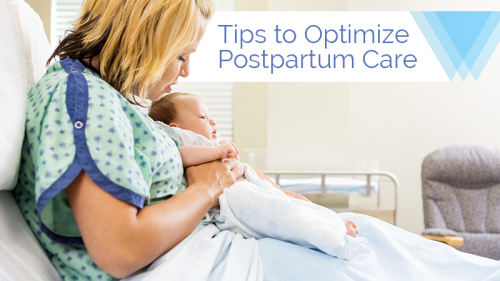
Childbirth is an unforgettable stage in a woman’s life. One will have to go through unbearable pain to ensure safe delivery. However, after the nine months of carrying the baby and the actual childbirth, the challenges that the mother face does not end there. “The biggest myth is that this should be a time of idyllic happiness. It’s really a time of terrific challenge,” says Arthur Kovacs, PhD. The postpartum stage is the moment right after childbirth; it extends from weeks to more than a year for most mothers.
Recovering from childbirth also means that the mother should be aware of changes that will occur, both physical and psychological. Initially, new mothers will feel the effects of delivery such as the difficulty of movement. Left untreated, this may lead to complications.
While many mothers recognize the importance of postpartum healthcare, a number of them would still put off an appointment with the doctor to take care of the baby. However, given the drastic changes that new mothers have to go through, seeking health advice from medical professionals are just as urgent. “Being a new mom, there is so much insecurity about whether you’re going to be good at it. There’s so much fear, which feels out of control,” says Lesley Goth, PsyD. Seeing a doctor can help.
If you’re reading this because you have just given birth, congratulations! You’re on the right track to recovery. Know the reasons why postpartum care is essential and how it can help you become a better mother.
Your Needs Are Important Too
Bring to mind that caring for your body postpartum is as important as taking care of your precious newborn. If you were taking care of your body when you were single, you should be doubling the effort now that a baby is reliant on you for their life.
They say you cannot give what you don’t have. If you’re feeling weak or different after the delivery, you will be unable to directly address the needs of your child. You may have to anticipate more physical changes including regular cramping and breast engorgement. Mothers also experience postpartum depression (PPD) that is often associated with anxiety, sleep deprivation, and insecurities. “There’s so much stigma about postpartum depression,” says Susan Hatters Friedman, MD.

Your Healing Progress Gets Monitored Professionally
There is a proliferation of different beliefs when it comes to healing postpartum wounds. It greatly varies from even culture-to-culture. However, if you want to be assured that you’re doing the right thing, your best bet is to follow your doctor. An article published in Mother.ly also explains this.
If you would like to avoid any complications in the future, it’s better to stick to the check-up schedule provided. Given that there are a LOT of problems that may arise after giving birth, you may opt to heed our advice.
If money is an issue, you may just go to any government hospital or health center to be able to talk with a medical professional. There are a lot of options available nowadays if you remain vigilant.
In the end, remember that postpartum healthcare is crucial especially for first-time mothers since it is a period where mothers needs adapt to these changes while recovering from childbirth. Support from friends, family and especially her husband is needed to make she get through the challenges of motherhood. Counseling is also essential because healthcare professionals are there to help you get through the suffering.